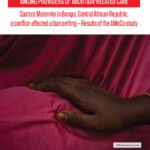
This evidence brief from the AMoCo study presents selected results of a knowledge, attitudes, practices, and behaviors (KAPB) survey given to health professionals providing abortion-related care. Providers are critical to providing timely and high-quality comprehensive abortion care (CAC) that can decrease abortion-related complications. This survey aims not only to assess the KAPB of CAC providers in hospital settings but to identify provider-related barriers to adequate CAC and points for improvement in the provision and accessibility of CAC services.
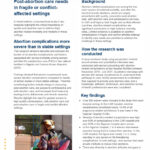
This research snapshot summarizes methods, key findings, and implications of the Abortion-related Morbidity and Mortality in Conflict-affected and Fragile Settings study conducted in Jahun, Nigeria and Bangui, Central African Republic.
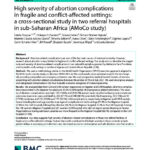
This study describes the magnitude and severity of abortion-related complications in two referral hospitals located in two different types of fragile and conflict-affected settings and supported by Médecins Sans Frontières.
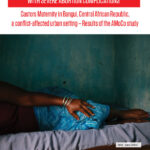
This evidence brief summarizes key findings from the qualitative component of the AMoCo study, which aims to describe the access to care and treatment of women and girls hospitalized in Castors Maternity Hospital in Bangui for potentially life-threatening and near-miss abortion complications such as severe haemorrhage, severe sepsis, and uterine and intra-abdominal perforation.
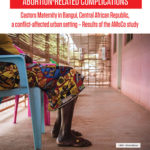
This eight-page brief outlines selected findings from a research project on the burden of abortion-related complications and their contributing factors in the Maternity of Castors in Bangui, Central African Republic. The study found a greater severity of abortion-related complications in this facility compared to African hospitals in stable settings and reinforces the need to recognize abortion as a serious health issue among fragile or crisis-affected populations.


